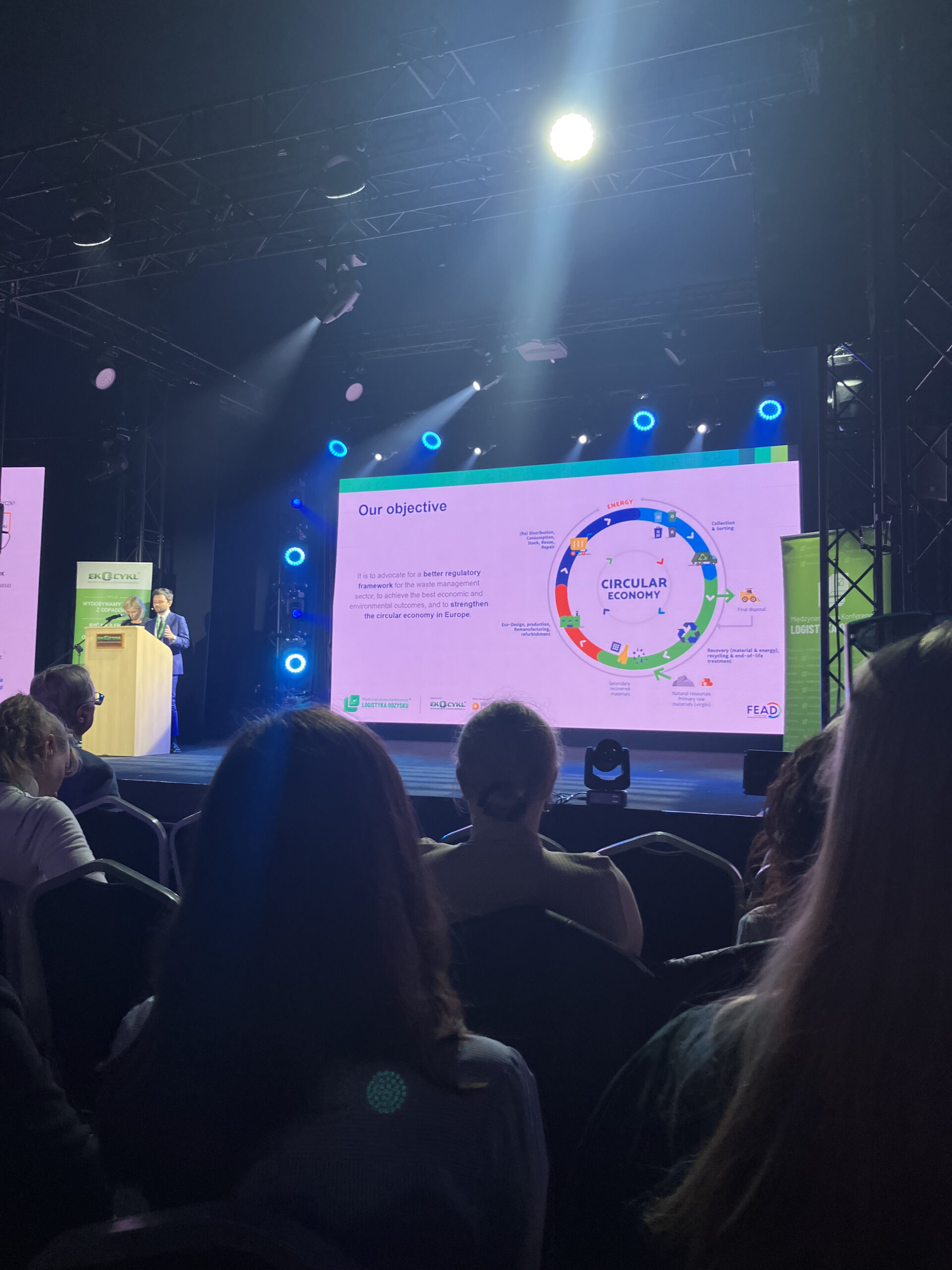The main objectives of the International Conference on Recovery Logistics are to expand knowledge and share knowledge on the changing responsibilities of regulating the economy towards a closed-cycle model economy. This includes packaging in warehouse logistics as well as the problem of collecting, storing and processing electro-waste. At the conference we learned about solutions in waste management within the European Union. Issues concerning waste incinerators and the need to develop green business models were raised. New GOZ regulations for SMEs are also about to enter Poland.
-
The first part of the Conference belonged to speaker Paolo Campanella, Secretary General of the European Federation of Waste Management (FEAD). FEAD is the Institution dealing with the overall value waste chain within the European Union. The speaker presented the transformation of the linear model into a circular – circular closed-cycle model. In his opinion, the closed-circle economy starts with ECO-design, an approach that is still lacking in the European Union.
-
The second speaker, attorney Tomasz Lasecki of the Maruszkin Law Firm, presented regulations supporting companies in sustainable environmental and climate action. Due to the product law introduced in Poland, SMEs face a number of changes to which they must adapt.
-
Another topic discussed was a lecture by Professor Grzegorz Wielgosiński, PhD, engineer, from the Technical University of Lodz. We are seeing a systematic increase in the amount of municipal waste in Poland by an average of about 0.5 million tons per year. According to the professor, the Closed Circuit Economy should start with an ECO-design change in the waste system. Paolo Campanella Secretary General of the European Federation of Waste Management (FEAD) has the same point of view.
-
The highlight of the Conference in the context of EEE was a speech given by Dr. engineer Robert Wawrzonek, Member of the Management Board of REMONDIS Electrorecycling sp. z o.o., on the subject of obligations in Poland concerning electrical and electronic equipment. The Remondis Group is a European leader in the field of electro-waste management. It has 11 plants in Europe and 2 electro-waste processing plants in Poland (Lodz, Warsaw). It processes all types of EEE except fluorescent lamps. The company also has 70 EEE collection locations in Poland. Its offer for companies also includes reporting and a wide range of educational programs, aimed at companies as well as associations, institutions and other entities. Poland’s EEE management business is constantly growing. In 2009, four years after the introduction of the first EEE law, Poland passed an amendment setting the target for electro-waste collection at 35%. This means that companies producing and selling electrical and electronic equipment (EEE) are required to recover and recycle 35% of the total weight of the EEE they place on the market.In 2022, an amendment to the law took effect, raising the electro-waste collection target to 85%. Poland is currently undergoing analysis by the European Commission regarding changes to the implementation of the WEEE Directive. The effects, impacts, and projected values for the coming years are being studied, and we eagerly await the results of the Commission’s report.
Written by: Katarzyna Kupińska, Media Dizajn
